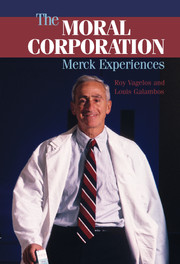6 - Winning in Global Competition
Published online by Cambridge University Press: 05 June 2012
Summary
I'd like to tell you that as soon as i became ceo at Merck (on July 1, 1985), I cut a big deal and won the heavyweight business crown. But I didn't. I'd barely settled into my new office when I made my first mistake, a global whopper. It was just what you might expect from a green CEO who didn't want to acknowledge that his organization wasn't ready to slug it out, toe-to-toe, with a tough international competitor. The details, round by round, blow by blow, are engraved on my memory, but I'll try to gloss over the minutiae.
It was my first deal. ICI, the giant British chemical company, had approached Merck because they needed a modern cardiovascular drug to boost their sagging product line and were focusing on the ACE inhibitors. Merck had an excellent candidate coming along in the clinic, lisinopril, our follow-on therapy to Vasotec. Our early clinical results were very positive. Lisinopril reduced blood pressure, was a bit more potent than Vasotec, and appeared to have a slightly longer duration of action.
On the basis of these results and our experience in the field, we were confident that our new product would be a success. ICI agreed and proposed that we both market the drug worldwide at the same time, competing against each other and using different brand names for the same therapy.
In exchange for lisinopril, ICI offered one of their compounds, a drug designed to stop the long-term ravages of diabetes.
- Type
- Chapter
- Information
- The Moral CorporationMerck Experiences, pp. 93 - 119Publisher: Cambridge University PressPrint publication year: 2006



